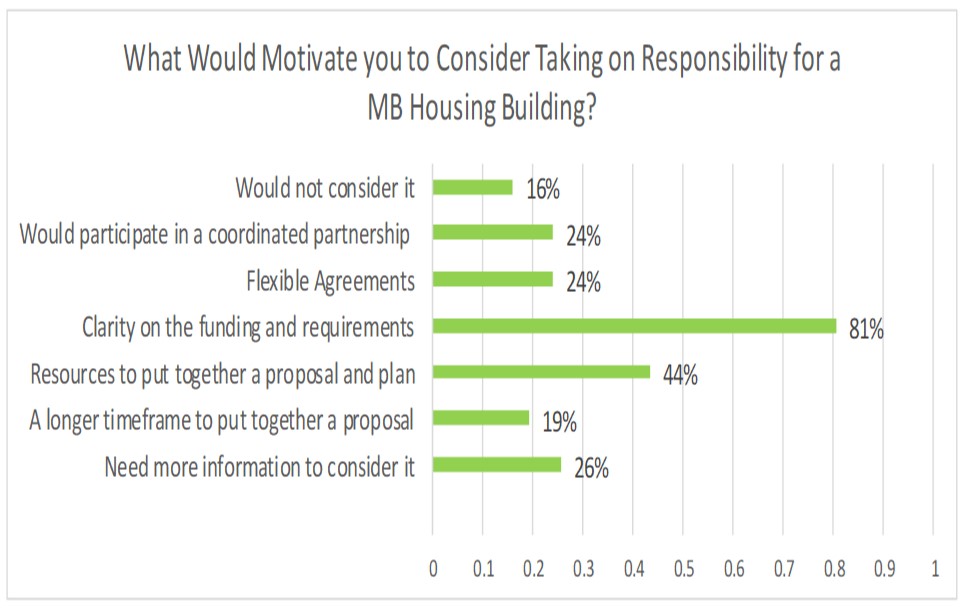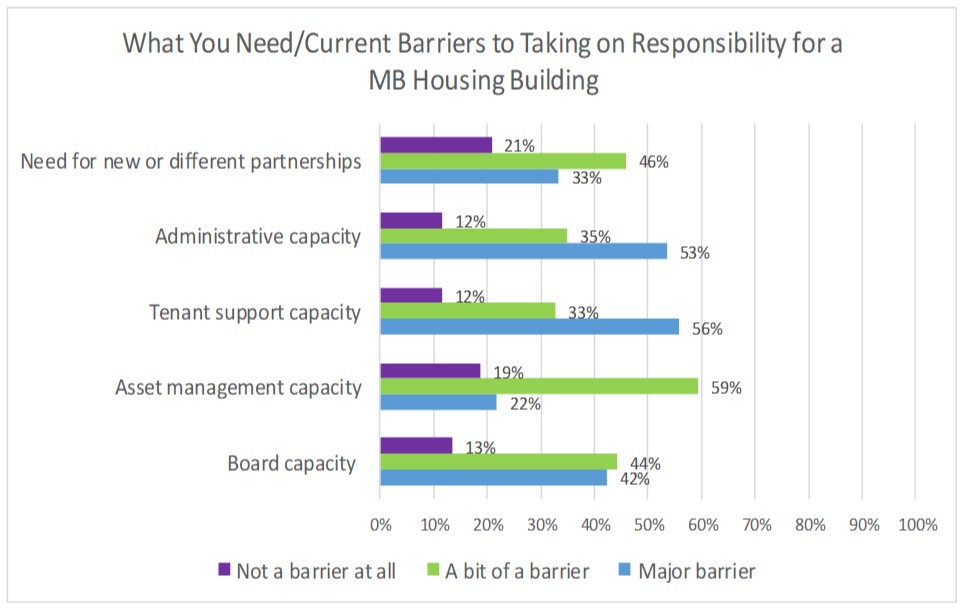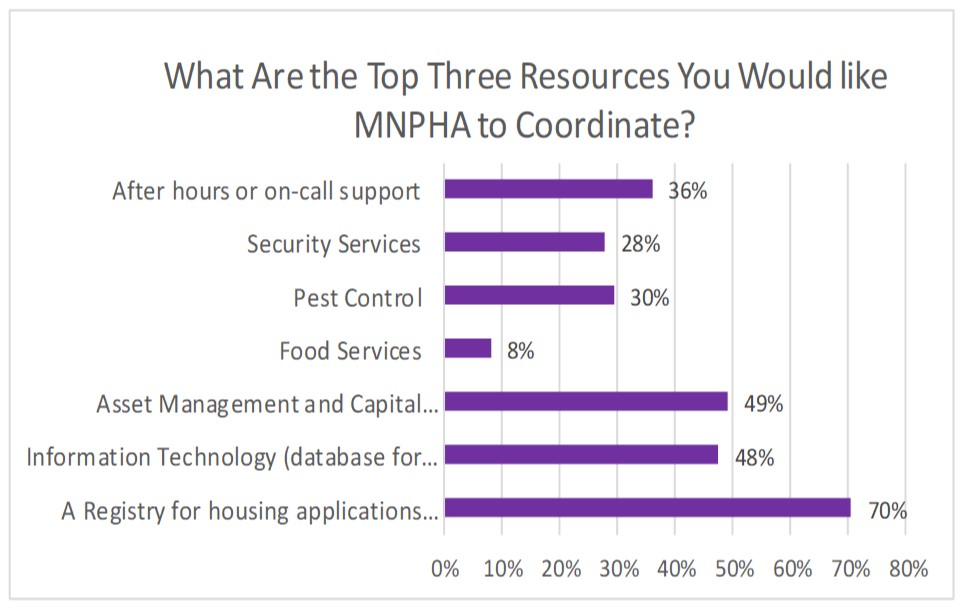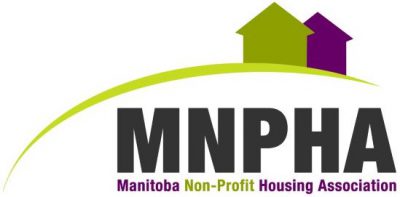
Word Cloud from MNPHA Members response to the question “what is your favourite aspect of working in non-profit and affordable housing?”
On November 18, MNPHA Members and partners who attended the Building Partnerships Conference provided feedback to the transformations to social housing in Manitoba. Their responses to a series of questions on the transformation are below:

Respondents could select as many responses as they wanted. The percentage indicates the proportion of total respondents who selected that answer.


Respondents could select up to three responses. The percentage indicates the proportion of total respondents who selected that answer.
Carolyn Ryan, A/CEO of Manitoba Housing, joined MNPHA on October 17 to share updates on the transformations that will take place in Manitoba’s social housing sector over the next decade. Below is a summary of her presentation:
 |
Manitoba Housing and Non-Profit Housing in Manitoba are on two transformative journeys. These are two journeys that will change the social housing landscape in a massive way in the next nine years.
- The transfer of Manitoba Housing’s direct management responsibilities. This started in Winkler to the Winkler Affordable Housing Inc. and increased through Requests for Proposals(RFPs). To date, management of 800 units have transitioned from MB Housing to non-profits and, in Brandon, a private property management company. The RFP process works relatively well in urban areas, but less in rural areas, particularly because MB Housing wants local providers to be involved. MB Housing will know how many units and how quickly this transition might take place in the coming weeks. We can anticipate RFPs for large scale transfers (500 units at a time).
-
The Bilateral Agreement between Canada and Manitoba for the National Housing Strategy. The funding largely replaces that which was available under the Social Housing Agreement, as well as new funding for the Canada Housing Benefit to start in 2020. There will be $451m, tied to a commitment to maintain the current social housing portfolio (everything that was under agreement as of April 1, 2018) over the next nine years. While it would be possible for Manitoba Housing to simply renew existing operating agreements and keep housing status quo, this is not the intention. This would create a huge ‘cliff’ of funding loss after nine years. Subsidies can and will continue, but we need to have a clear understanding of whether they should in all cases. Non-profit housing does not need to be self-sustaining after nine years; however, as a sector, we need to be more financially sustainable. Sustainability must be assessed on a project-by-project basis related to demand, the market, the state of the asset, the vitality of the board of directors, etc.
- What is the role of MNPHA in this transformation?
- What supports that MB Housing currently provides should shift to MNPHA?
- How do we develop more partnerships and connections with more providers, particularly those outside of Winnipeg?

Recent Comments